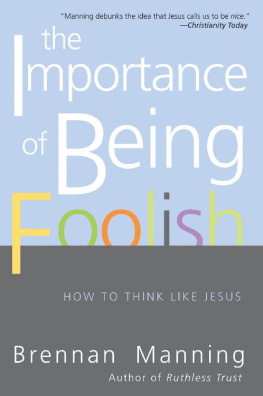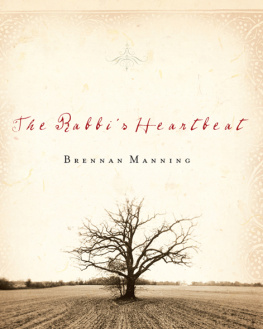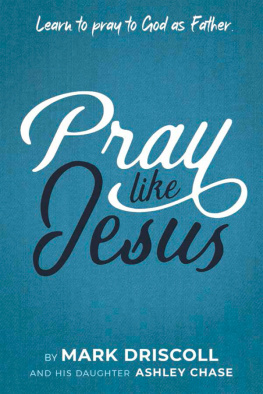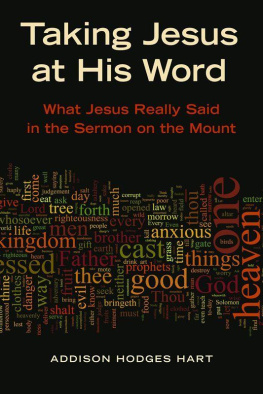 It is wonderful what a simple White House invitation will do to dull the critical faculties, warned the late Reinhold Niebuhr. A weighty admonition! The privilege of preaching to the president is so vaunted that most clergymen use the opportunity to repay the compliment. In an atmosphere of mutual admiration, religion dissolves into verbal Alka-Seltzer, and prophetic preaching becomes virtually impossible.
It is wonderful what a simple White House invitation will do to dull the critical faculties, warned the late Reinhold Niebuhr. A weighty admonition! The privilege of preaching to the president is so vaunted that most clergymen use the opportunity to repay the compliment. In an atmosphere of mutual admiration, religion dissolves into verbal Alka-Seltzer, and prophetic preaching becomes virtually impossible.
The request from other Christians to write a book on the mind of Jesus has similar, though far less sophisticated, snares. Wanting to please everybody, I am sorely tempted to pen something bland, a treatise riddled with clichs, tortured metaphors, and meaningless stories. Then everybody will be happy and gloriously self-contented. But this book is written out of the conviction that Jesus Christ lived and died and rose in order to form the Holy People of Goda community of Christians who would live under the sway of the Spirit, men and women who would be human torches aglow with the fire of love for Christ, prophets and lovers ignited with the flaming Spirit of the living God. To offer an innocuous effort would be a prostitution of the gospel, an insult to God, and a grave disservice to the reader.
For two years it was my privilege to live with a Christian community known as the Little Brothers of Jesus and to see the theme of this book develop in the undramatic chores of the workaday world. The life of a Little Brother is modeled on the hidden life of Jesus of Nazareth, the many years he spent in obscurity devoted to manual labor and prayer before embarking on his public ministry of preaching, teaching, and healing.
I spent the first six months in the little village of Saint-Remy, France, one hundred-odd miles southeast of Paris. It was a winter of shoveling manure on nearby farms and washing dishes in a local restaurant. The evenings were wrapped in silence in Eucharistic adoration and meditation on the Scriptures. The days passed in a regular rhythm of engagement with and withdrawal from the world. It was a gradual initiation into an uncloistered contemplative life among the poor.
Our group of seven (two Frenchmen, one German, a Spaniard, a Slav, a Korean, and myself) then moved on to Farlete, another small village, in the Zaragosa Desert of Spain. In the twelve months we lived there we came to love the warmth, simplicity, and intimate friendship of a remote Spanish pueblo with a population of six hundred. In summer we worked ten to twelve hours a day in the wheat harvest or on construction jobs, traded turns as cook in the fraternity, and saved enough money to buy six bottles of beer for the Assumption Fiesta, which marked the end of the harvest. Our rapport with the villagers was profound because we shared not only their poverty, toil, bitter bread, and anxiety over the harvest but the joy of a newborn baby, the nuptial bliss of newlyweds, and the multitude of lesser experiences woven into the warp and woof of rural peasant life.
During the year we frequently sojourned in solitude to a high, rocky mountain retreat that is not only far removed from urban life but one of the most remote hermitages in Europe. In many long hours of prayer in the caves, I realized anew that the saving knowledge of Jesus Christ supersedes all else, allowing us to experience a freedom that is not limited by the borders of a world that is itself in chains. At the same time, I recognized that many of the burning theological issues in the church today are neither burning nor theological and that in an age characterized (in some quarters) by confusion, third-rate theatrics, and infidelity, it is not more rhetoric that Jesus demands but personal renewal, fidelity to the gospel, and creative conduct. As mile Cardinal Leger said in his farewell to Montreal, The time for talking is over.
This is the fundamental premise around which the 230 disciples who compose the Little Brothers of Jesus have organized their lives. The Little Brothers learn to disentangle essentials from nonessentials and to realize that this particular way of life is simply an exterior consequence of an immense, passionate, and uncompromising love for the person of Jesus. To live among the poorest and most abandoned of peoples as a manual laborer without clerical garb, to pass days and weeks in the desert in the gratuitous praise of God, to communicate through friendship values that cannot be communicated through preaching, satisfies not a desire for novelty but a compulsion of love. Some may call it foolish. I call it true wisdom from the God of Love.

 The gospel narrative of the cleansing of the temple is a disconcerting scene (John 2:1322). It presents us with the portrait of an angry Savior. The meek Lamb of God who said, Take my yoke upon you, and learn from me; for I am gentle and humble of heart (Matthew 11:29), has fashioned a homemade whip and begun tearing through the temple, overturning stalls and showcases, thrashing the merchants and roaring, Get out of here! This isnt Wal-Mart. You will not turn sacred space into a shopping excursion! You liars! To visit the temple is a sign of reverence for my Father. Get out of here!
The gospel narrative of the cleansing of the temple is a disconcerting scene (John 2:1322). It presents us with the portrait of an angry Savior. The meek Lamb of God who said, Take my yoke upon you, and learn from me; for I am gentle and humble of heart (Matthew 11:29), has fashioned a homemade whip and begun tearing through the temple, overturning stalls and showcases, thrashing the merchants and roaring, Get out of here! This isnt Wal-Mart. You will not turn sacred space into a shopping excursion! You liars! To visit the temple is a sign of reverence for my Father. Get out of here!
What is even more disconcerting is Jesuss relentless passion for the truth. In our society, where money, power, and pleasure are the name of the game, the body of truth is bleeding from a thousand wounds. Many of us have been lying to ourselves for so long that our comforting illusions and rationalizations have assumed a patina of truth; we clutch them to our hearts the way a child clutches a favorite teddy bear. Not convinced? Consider the man on his third luncheon martini quoting the Apostle Paul about a little wine being good for the stomach; or the liberated Christians vehement defense of the nudity in The Last Tango in Paris, the violence in Pulp Fiction, or the oral sex scene in My Private Idaho, because they are integral to the plot and tastefully done; or the upstanding church deacon who overlooks cheating and manipulation in his business dealings because its the only way to be competitive; or whole churches in which the delirium of guiltlessness is reality, the mastery of biblical exegesis is holiness, the size of the congregation is proof of its authenticity, and on and on. There is no limit to the defenses we contrive against the inbreak of truth into our lives.
The painful question we face in the church today is whether the love of God can be purchased so cheaply. The first step in the pursuit of truth is not the moral resolution to avoid the habit of petty lyinghowever unattractive a character disfigurement that may be. It is not the decision to stop deceiving others. It is the decision to stop deceiving ourselves. Unless we have the same relentless passion for the truth that Jesus exhibited in the temple, we are undermining our faith, betraying the Lord, and deceiving ourselves. Self-deception is the enemy of wholeness because it prevents us from seeing ourselves as we really are. It covers up our lack of growth in the Spirit of the truthful One and keeps us from coming to terms with our real personalities.











 It is wonderful what a simple White House invitation will do to dull the critical faculties, warned the late Reinhold Niebuhr. A weighty admonition! The privilege of preaching to the president is so vaunted that most clergymen use the opportunity to repay the compliment. In an atmosphere of mutual admiration, religion dissolves into verbal Alka-Seltzer, and prophetic preaching becomes virtually impossible.
It is wonderful what a simple White House invitation will do to dull the critical faculties, warned the late Reinhold Niebuhr. A weighty admonition! The privilege of preaching to the president is so vaunted that most clergymen use the opportunity to repay the compliment. In an atmosphere of mutual admiration, religion dissolves into verbal Alka-Seltzer, and prophetic preaching becomes virtually impossible.